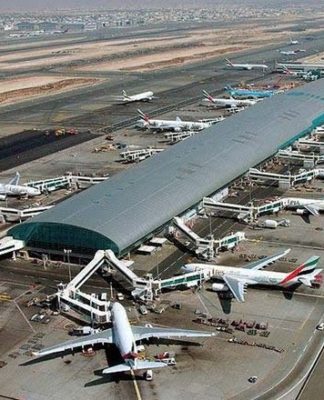Breaking
Economy contracts by worse than expected 0.5% in July, official figures show
The ONS points to a series of headwinds for output, including appalling weather which hit construction and demand for summer fashion at the shops.
James Sillars
Business reporter @SkyNewsBiz
Wednesday 13 September 2023 08:05, UK
Listen to this article
0:00 / 2:57
1X
BeyondWords
Audio created using AI assistance
Members of the National Education Union (NEU) take part in a rally through Westminster to Parliament Square, London, as teachers stage walkouts across England in an ongoing dispute over pay. Picture date: Wednesday July 5, 2023. PA Photo. See PA story INDUSTRY Strikes. Photo credit should read: James Manning/PA Wire
Image:
Healthcare workers and teachers went on strike in July
Why you can trust Sky News
The UK economy contracted by 0.5% in July – with early official figures suggesting that strikes and the summer washout had an impact.
The Office for National Statistics (ONS) said the decline – which was worse than many economists had expected – followed an unrevised 0.5% increase in gross domestic product (GDP) over the previous month.
ONS director of economic statistics Darren Morgan said of the yo-yo performance: “Our initial estimate for July shows that GDP fell; however, the broader picture looks more positive, with the economy growing across the services, production and construction sectors in the last three months.
“In July, industrial action by healthcare workers and teachers negatively impacted services and it was a weaker month for construction and retail due to the poor weather.
“Manufacturing also fell back following its rebound from the effect of May’s extra bank holiday.
“A busy schedule of sporting events and increased theme park visits provided a slight boost.”
The numbers were released against a backdrop of recession fears due to inflation headwinds still facing households and businesses.
Ken Clarke18:25
Play Video – Ken Clarke ‘worried’ for UK economy
Ken Clarke ‘worried’ for UK economy
They also reflect the impact of the action taken by the Bank of England to control the pace of price increases.
It is facing a delicate balancing act in determining how much steam to take out of the economy through its programme of 14 consecutive interest rate hikes to date.
Its battle against inflation has had a sting in its tail, as the surge in borrowing costs has pushed up mortgage repayments and property rental prices substantially, adding to the financial burden for families.
Read more:
Number of long-term sick hits new record high
Why the end of interest rate hikes is now in sight
preview image21:35
Play Video – ‘There haven’t been wage increases in every sector. Most people are still finding it incredibly difficult.’
‘Most people are still finding it incredibly difficult’
Financial markets are tipping the Bank to impose one more 0.25 percentage point rate hike next week due to its continued worries about the pace of wage growth, which is running at a 22-year high and is currently outstripping the consumer prices index (CPI) measure of inflation.
Policymakers fear that high pay awards will only fuel price growth in the economy in the months ahead, forcing further rate action.
The next inflation figures, due in a week’s time, will also be closely scrutinised – and many economists believe there could even be a small lift in CPI due to rising oil prices throughout August.
But most agree that, barring further global and domestic shocks, the UK should avoid recession this year.
Samuel Tombs, chief UK economist at Pantheon Macroeconomics, said of the ONS data: “We doubt that July’s month-to-month drop in GDP marks the start of a falling trend, given that it can be uncontroversially attributed to one-off developments,” he wrote.






























